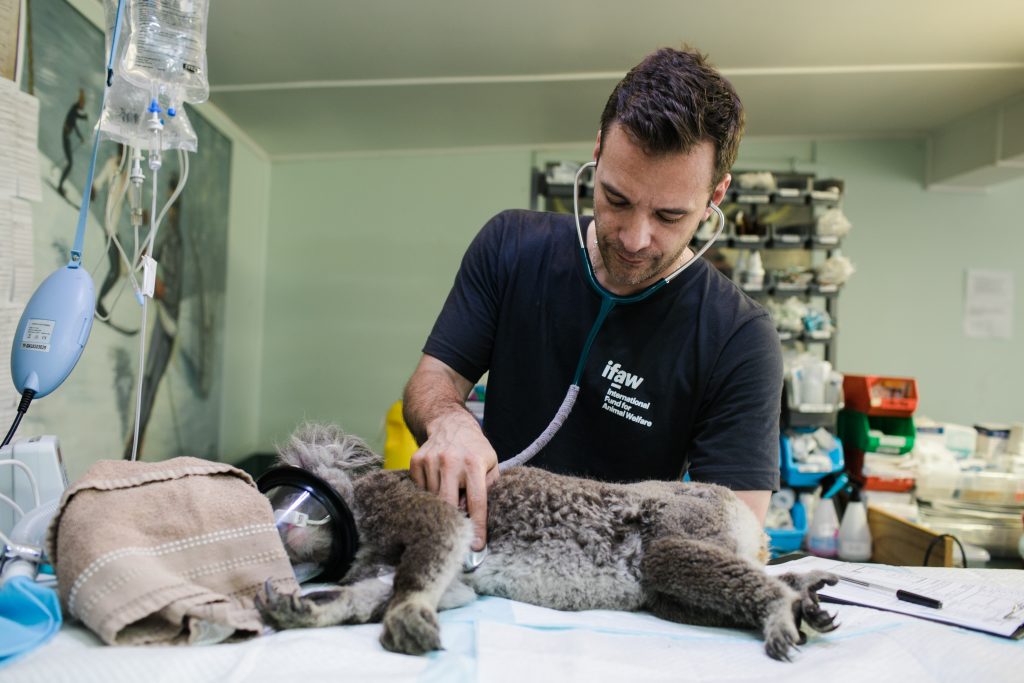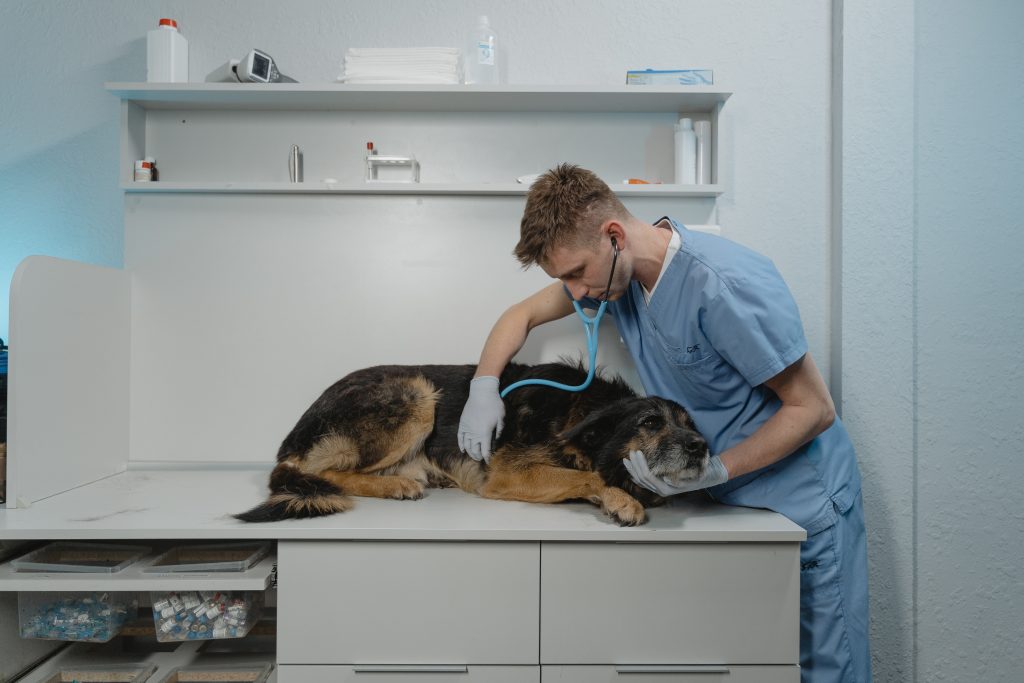
DO YOU WANT A PROACTIVE, WELLNESS-ORIENTED VET OR A TRADITIONAL ONE THAT ONLY PUTS OUT “FIRES” AS THEY ARISE?
If you are a pet guardian (owner) then you have been to a veterinarian before. If you are a responsible pet guardian then you should have visited them at least once in the past year for a wellness check and annual vaccinations.
As a pet guardian who takes my responsibility towards our pets seriously and as an animal welfare volunteer, choosing a good veterinarian is not a decision I take lightly. I do my homework well and I am not blind to the fact that not all vets are good, competent or even kind. Sadly, we can share many horror stories about this.
A FEW THINGS TO KEEP IN MIND
- When people visit a vet, it can be an emotional situation and emotions are rarely objective. People will claim their vet is the best, but they can’t say that if they have not actually been to all vets in the area.
- No vet is perfect and vets can make a mistake, but when those mistakes pile up, you have to ask questions! For me, one of the best indicators of a good vet are those used by responsible animal welfare organizations. They deal with vets on a daily basis and have extensive experience in how veterinarians work.
- Not all veterinarians are qualified to treat farm animals or exotic pets! If you have exotic animals, it is crucial to find an exotic qualified vet! Not all countries require the same qualifications to become a vet.
- Do your own research even if it seems like a lot of work because your pet’s well-being and life depend upon finding the best veterinary care available.
- Start the search before you have an emergency!
- Google reviews can be used, but we have had a situation where a vet practice unethically encourages good google reviews for prizes! They can also create fake profiles to give good reviews.
If you are looking for an exotic vet you can do the following: Check Google for veterinarians who advertise as “exotic” (including, rabbits & rodents). Then randomly select 5 veterinarians who do NOT advertise as avian or exotic. Phone these veterinarians and ask who they refer their clients to if they have an exotic pet case. If all 5 veterinarians give you the name of the same veterinarian, ok. If not, then randomly select another 5 veterinarians and continue the process until you have a clear “winner.”
The next step is to phone the vet and let the receptionist know that you are concerned with finding the very best veterinarian to care for your exotic pet and that you would like to consult with the vet directly. Also read about screening questions for finding a rabbit veterinarian.

SO, WHAT DO I LOOK FOR IN A VETERINARIAN?
- WHEN I VISIT THE VET
- Location is not the most important thing, but having an area where the dogs can relieve themselves or walk without immediate danger, like a busy road, while we wait, is a bonus.
- Our pets are relatively healthy, so we mostly go for the annual check-up only. In this case, I don’t want my pet to be in close contact with other sick animals, so having a separate area for healthy pets and vaccinations for example is important to me. It is also a bonus if they have specie specific treatment rooms like a cat room. Whether it is another animal business like grooming, a pet shop where they sell animals, or for treatment I never want the sick animals to be in close contact with the healthy ones to reduce that risk.
- How kind is the vet towards all kinds of animals and people? You can usually see this in the way they talk to and handle the animals. How kind and helpful is the receptionist?
- I need my vet to be confident when working with my pet. Sure, the risk of being scratched or bitten is always there, but animals know when someone is not confident and this will only increase their stress during the visit.
- I want a vet who is proactive, wellness-oriented, informed and does not mind prescribing natural remedies or treatments. How accurate is their diagnosis?
- I want to see the vet when I visit and not the vet nurse. Especially if it is an annual wellness check and if you pay the same for the consultation. I also prefer to ask for a vet specifically so my pets can see the same vet.
- They need to be able to communicate clearly, explain well and be willing to answer your questions. You cannot take the chance with your pet’s life to misunderstand the treatment. Some veterinarians are better than others at communicating what they’re doing and why, and what they are or aren’t finding as they inspect your pet. I recently had one of the best vet experiences ever in this regard.
- I want a vet who does a thorough questioning about all aspects of my pet’s life (diet, behaviour, body and environment) as well as a thorough exam from nose to tail and compare it to the previous visit.
- Is this vet practice helpful in emergencies and especially with stray or wild animals brought in by strangers who try to help?
- Do they check whether your pet’s microchip is working and has not migrated in their body and then ask if the microchip is registered on multiple databases? Are they willing to check microchips on lost pets, without charging you, so these animals can potentially be reunited with their owners quickly?
- How understanding and supportive is your vet with euthanasia because this is hard for any pet parent (and compassionate vets)?
- When you keep proper records of your pets, you want clear statements from the vet and it is important in case something goes wrong.
- Fancy equipment can be useful, but even in my profession, I find that some who become dependent on fancy equipment, tend to lose some important “natural” instincts which I value more.
Your vet may also perform diagnostic tests such as a complete blood count, urinalysis, thyroid screen, and others to get a complete picture of your pet’s internal health. When the vet suggests expensive diagnostic tests, in most cases, it is not about the money. There are so many things that can happen in your pet’s body, which can be caught early before it presents physically for you to notice.
Tips for the visit
- Prepare questions or observations since the last visit in advance, so you can discuss them with your vet. It may also lead to important conversations about their health. There is no stupid question when it comes to the life and well-being of your pet and if a vet makes you feel judged or stupid, then get another vet. Ask these questions and ask for explanations if you don’t understand.
- Knowing what your veterinarian is checking for can help you prepare questions and raise concerns you may have about your pet’s health. Here are some questions Dr. Karen Becker suggests your vet should ask and some questions you can ask your vet.
- Be honest with your vet because it is in the best interest of your pet.
- For non-emergency situations, I take treats and water with for them to drink. Doing some sniff-work before the visit can help calm them too.
- Don’t forget your harness and leash.
Also read how to avoid high vet bills and pet first aid tips.
2. OUTSIDE THE VISIT
- There are some veterinarians all over the world where you will get the impression that it is about the money and not because they care, be very wary of those ones! If a vet bad mouths animal welfare organizations or make an issue if they use outside vets or organize sterilization days, then it is a good indication that it is about the money.
- Those of us in animal welfare are highly unlikely to choose a vet that breeds themselves or that encourages breeding. The reason for this is that we have a massive overpopulation crisis and millions of healthy animals are being euthanized (killed humanely) because there are just not enough homes for them all. If a vet doesn’t understand that and doesn’t promote sterilization, which is beneficial for your pet’s health, then I can’t support them with a clear conscience.
- Although I think it is important for the public to know which vets are good for animal welfare organizations, be wary of those who constantly brag about it on social media! Smart people will see right through those who are constantly bragging or badmouthing others or deleting comments or blocking anyone who oppose the narrative they sell. I also like vets who focus on education via social media!
- Do they have emergency hours available? I don’t want to use one vet practice for the annual checks and use a totally different one for an emergency(with exceptions).
- One of the best indicators for me about any business is the personnel turnover. How does the vet treat their personnel? Are the employees happy there or does this business constantly change personnel? If they do, you should ask some serious questions!
OTHER IMPORTANT QUESTIONS FOR YOUR SEARCH
- How many patients do they see per day or how many operations do they do per month on average? Take that number and divide it by the number of vets and hours they are open. You do want a vet that is trusted by a lot of people, but you also want a vet that does get enough rest and one that does not push in too many procedures. Quality versus quantity (the money thing you know). This is important because they work with lives and need to be responsible.
- Ask who does the procedures. We have had cases where unqualified personnel performed dental procedures or euthanization and that is highly irresponsible.
- If a vet does euthanize your pet, it is important to ask what happens to the body. I prefer proper cremation through registered cremation service providers. Some vets charge you a lot and then either dump the bodies at local garbage sites or burn the bodies somewhere.
- Don’t be shy to ask when and where they qualified as a vet.

WHAT SHOULDN’T YOU DO?
Do not make your choice based on how close the veterinarian is to your home (unless that veterinarian is the clear “winner”).
Don’t assume that just because a veterinarian works with breeders or kennel clubs, they are experienced or knowledgeable about a species.
Don’t think you case is isolated. If you had a bad experience at a vet including unprofessional conduct or negligence, please read here and contact me via The Paw Company. Your case might not be isolated and you can prevent this from happening to another animal.
It is your responsibility to choose the best vet possible for your animals, visit them for wellness checks and be proactive in keeping them healthy! We support at least a minimum once a year visit to your vet, but bi-annual visits, especially for older pets should be considered.
Next week we will look at why it is a good idea to spay and neuter your pets!
WHEN YOU KNOW BETTER, DO BETTER!